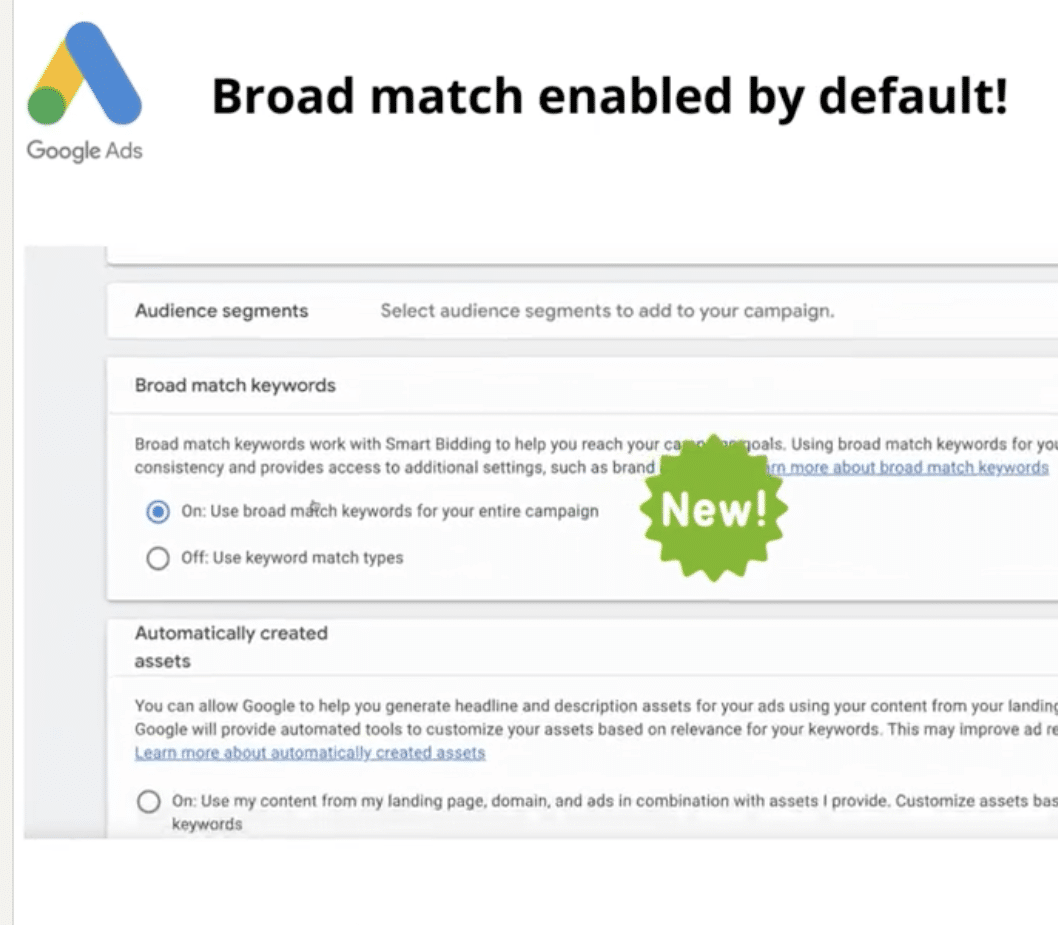Google Ads makes broad match default for new search campaigns


Google Ads made broad match the default setting when creating new Search campaigns, a departure from its previous default of having broad match turned off.
Why it matters. This change could significantly impact campaign performance and budget spend if advertisers aren’t vigilant.
Key details:
- Broad match is now enabled by default for new Search campaigns
- Could lead to increased costs if proper negative keywords aren’t in place
Between the lines. This move aligns with Google’s push towards more automated, AI-driven campaign management, potentially simplifying campaign setup for novice advertisers.
Yes, but. Experienced advertisers may need to be more cautious when setting up new campaigns to avoid unintended broad targeting. With broad being the most inefficient of the match types, this just adds an extra layer of check advertisers will need to take into consideration when setting up their campaigns.
First seen. We first were alerted to this update by Thomas Eccel on LinkedIn:

What to watch. How this change affects campaign performance, especially for advertisers who prefer to start with more precise targeting using phrase or exact match.
Bottom line. Advertisers should double-check their match type settings when creating new Search campaigns to ensure they align with their intended strategy.
